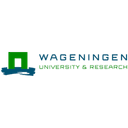Learn about plastic pollution's effects on soil, water, and air, exploring solutions and risk assessment methods in this comprehensive course.
Learn about plastic pollution's effects on soil, water, and air, exploring solutions and risk assessment methods in this comprehensive course.
This comprehensive course explores the critical issue of plastic pollution and its impact across environmental systems. Learn from international experts about plastic particles' lifecycle, from production to degradation into microplastics. Understand how these particles affect soil, water, and air quality while exploring assessment methods and sustainable solutions. The course combines theoretical knowledge with practical insights, featuring field research, lab work, and computer modeling. Perfect for environmental professionals, policymakers, and industry experts seeking to address plastic pollution challenges.
Instructors:
English
English
What you'll learn
Understand the lifecycle and impact of plastic pollution in environmental systems
Master methods for studying plastic pollution through field and lab research
Analyze transport pathways of macro, micro, and nanoplastics
Evaluate environmental risks and management standards
Develop strategies for reducing plastic pollution
Skills you'll gain
This course includes:
PreRecorded video
Graded assignments, exams
Access on Mobile, Tablet, Desktop
Limited Access access
Shareable certificate
Closed caption
Get a Completion Certificate
Share your certificate with prospective employers and your professional network on LinkedIn.
Created by
Provided by

Top companies offer this course to their employees
Top companies provide this course to enhance their employees' skills, ensuring they excel in handling complex projects and drive organizational success.





There are 7 modules in this course
This course provides a comprehensive exploration of plastic pollution in environmental systems. Students learn about the sources and transport of plastic particles, their effects on different ecosystems, and assessment methods for understanding their impact. The curriculum covers practical research methods, from field studies to computer modeling, and explores solutions for reducing plastic pollution. Special attention is given to stakeholder engagement and the development of environmental management standards.
General Introduction
Module 1
Introduction
Module 2
Soil
Module 3
Air
Module 4
Water
Module 5
Risk Assessment
Module 6
Solutions
Module 7
Fee Structure
Instructors

1 Course
Pioneering Soil Ecologist and Microplastics Research Expert
Esperanza Huerta Lwanga serves as a Senior Scientist at Wageningen University's Soil Physics and Land Management department, where she combines her expertise in soil ecology with groundbreaking research on microplastics in terrestrial environments. After earning her PhD in Soil Ecology from the University of Paris VI (Pierre & Marie Curie) in 2002, she has built an impressive career spanning Mexico and the Netherlands. Her research breakthrough came with discovering how microplastics affect earthworms and move through terrestrial food chains, producing the first scientific evidence of plastic debris transfer in terrestrial ecosystems. She has led multiple research projects, including studies on plastic-degrading bacteria and the impact of microplastics on soil invertebrates. Beyond her scientific work, she is an active educator who has supervised over 30 students across bachelor's, master's, and doctoral levels, while also serving as a journal editor for special issues on microplastics. Her work has gained international recognition, leading to keynote speaking engagements at FAO and various international forums. As a multilingual researcher speaking English, French, Spanish, and Dutch, she maintains an active presence in science communication through various media channels while also practicing yoga as part of her balanced approach to research and teaching.

1 Course
Wind Erosion and Environmental Transport Expert
Mahrooz Rezaei serves as Associate Professor at Wageningen University & Research, holding joint appointments in the Meteorology and Air Quality Group and Soil Physics and Land Management Group. Her research focuses on wind erosion, dust emission, air quality, and the transport of pollutants including microplastics in terrestrial environments. After establishing herself as a leading expert in wind erosion and soil physics, she has built an impressive research portfolio combining field experiments, remote sensing, and machine learning approaches to understand environmental transport processes. Her groundbreaking work on wind-driven transport of microplastics has garnered significant attention, with her 2019 paper in Science of the Total Environment being widely cited. She currently leads several research projects examining the intersection of soil physics, air quality, and pollutant transport, while supervising multiple PhD candidates. Her recent work employs advanced machine learning techniques to predict wind erosion patterns and develops innovative approaches to tracking pollutant movement across the soil-atmosphere continuum. Through her research and teaching at Wageningen, she continues to advance understanding of environmental transport processes and their implications for ecosystem health.
Testimonials
Testimonials and success stories are a testament to the quality of this program and its impact on your career and learning journey. Be the first to help others make an informed decision by sharing your review of the course.
Frequently asked questions
Below are some of the most commonly asked questions about this course. We aim to provide clear and concise answers to help you better understand the course content, structure, and any other relevant information. If you have any additional questions or if your question is not listed here, please don't hesitate to reach out to our support team for further assistance.



